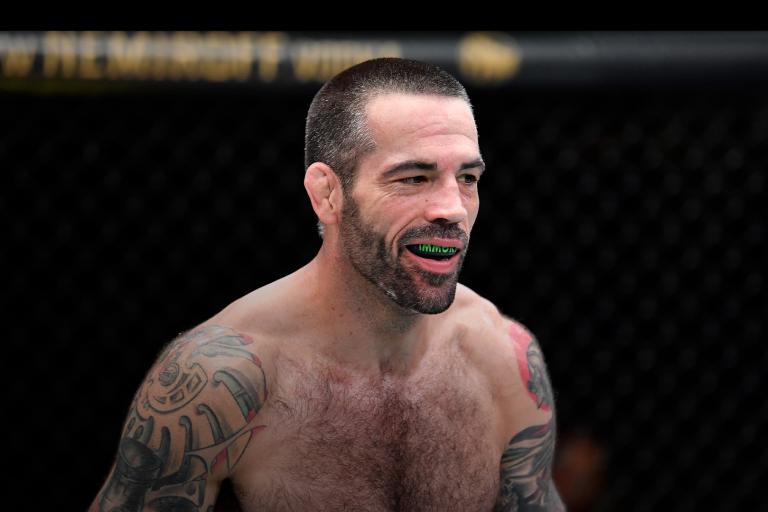The eye poke that ended Tom Aspinall’s UFC 321 heavyweight title defense against Ciryl Gane has reignited a debate about the fundamental problems plaguing professional mixed martial arts. Veteran fighter Matt Brown, speaking oin an interview with Ariel Helwani, outlined what he sees as systemic failures in how the sport addresses fouls.
UFC Legend Matt Brown Calls for Systemic Changes to Combat Eye Pokes in MMA
The incident in Abu Dhabi saw Gane inadvertently poke Aspinall in both eyes during an exchange late in the first round, forcing referee Jason Herzog to halt the contest at four minutes and 35 seconds. Aspinall was unable to continue, with his right eye remaining non-functional three days after the fight, according to his father Andy. The bout was ruled a no contest, allowing Aspinall to retain his title while Gane walked away without a loss on his record. Yet for Brown, the immediate ruling missed the larger point about accountability and prevention in sport.
Brown voiced frustration with critics who blamed Aspinall for not continuing to fight. The fighter emphasized that calling the heavyweight champion weak for being unable to see was absurd and contrary to what professional sport demands.
The core issue, according to Brown, centers on how the sport treats fouls and punishment. He advocated for a straightforward approach: if rules exist and a fighter breaks them, that fighter should face immediate consequences. Brown emphasized that the current system disadvantages the victim, not the aggressor. He explained:
Regarding eye pokes and officiating—if there’s a rule and you break it, you should be penalized immediately. The UFC needs to fix the gloves because it keeps happening. And the ref should stop fights that have been finished, not pretend to hear a horn that’s not there. There’s zero accountability.
Brown proposed that eye pokes resulting in injury should result in disqualification rather than a no contest ruling. While he acknowledged that Gane deserves a rematch with Aspinall, the Frenchman should have received a disqualification for this bout to establish precedent.
Brown has consistently pointed out that the UFC’s current gloves force fighters to keep their fingers relatively extended, making it difficult to form a closed fist. Brown revealed that his own training camps dedicate time to stretching and manipulating his gloves before fights, making them flexible enough to allow his hands to close more naturally. This workaround, he noted, should not be necessary as other organizations have already solved this problem.
Brown cited the PRIDE Fighting Championships glove design, which featured a natural curve that required fighters to actively extend their hand to open it. With that design, a relaxed hand formed a fist by default. Brown expressed disbelief that the UFC, with all its resources and technological capabilities, has not addressed this decades-old problem.
Brown questioned the role and effectiveness of state athletic commissions, suggesting they have abdicated their responsibility to serve the public interest. These commissions, funded by taxpayer dollars, should ensure that promoters follow regulations, that fighters are protected, and that referees and judges maintain legitimate standards. Instead, Brown argued, they appear to prioritize the UFC’s preferences over their duty as public servants.
For change to occur, Brown insisted, the UFC and athletic commissions must establish and enforce real standards. Rules without enforcement mean nothing, he argued. The sport operates with enough financial resources and organizational capacity to implement better glove designs, hold officials accountable for their decisions, and ensure that when rules are broken.



























